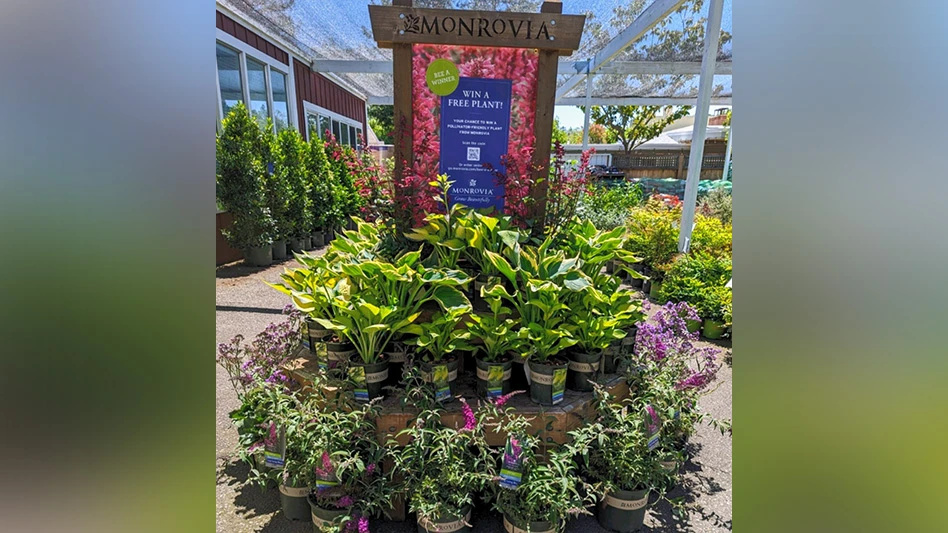 Suggest ginkgo when customers ask for…
Suggest ginkgo when customers ask for…
- A tree that will be large and showy at maturity
- An easy-care tree with no serious pest or disease problems
- A tree with outstanding fall color
- Something for a large, open area
- A tree with unusual leaves
{The story}
Few trees can boast the rich history of Ginkgo biloba. Customers are probably very familiar with ginkgo as an herbal supplement to treat circulatory disorders and enhance memory. But the tree—one of the oldest living species on Earth—is also prized as an ornamental. It makes an ideal shade, specimen or focal-point tree. Ginkgo is urban-tolerant, and can grow to a massive 80-feet tall and 60-feet wide given adequate space. It’s generally hardy in USDA Hardiness Zones 3-8. Besides its leaves, which flutter in the slightest breeze—ginkgo also has attractive brownish-gray bark that becomes highly ridged with age.
Display and marketing possibilities
- Play up ginkgo’s rich history as a “living fossil.” On signs, mention that the tree’s genetic line spans the Mesozoic era back to the Triassic period.
- Display photos showing ancient ginkgo trees found in Japan and China.
- Create an educational display describing the use of ginkgo as a medicinal plant.
- Cross merchandise with wind chimes and spinners. The fluttering leaves of ginkgo are nature’s form of “wind art.”
- Include ginkgo with a selection of other trees that offer especially showy, attractive bark.


Explore the September 2010 Issue
Check out more from this issue and find your next story to read.
Latest from Garden Center
- This Florida garden center's busiest days are in the fall, not spring. Find out how they do it
- Terra Nova Nurseries releases new agastache variety, 'Peach Pearl'
- The Certified Shopify Online Garden Center provides local retailers with ecommerce tool
- Meet the All-America Selections AAS winners for 2025
- Endless Summer hydrangeas and Suntory Senetti glam up Grammys red carpet
- Ball Seed releases 2025 edition of 'Thrive and Flourish' for landscape and garden retail
- American Floral Endowment's Fred C. Gloeckner Foundation Research Fund accepting grant proposals
- Floral Marketing Fund and CalFlowers partner to advance floral industry





